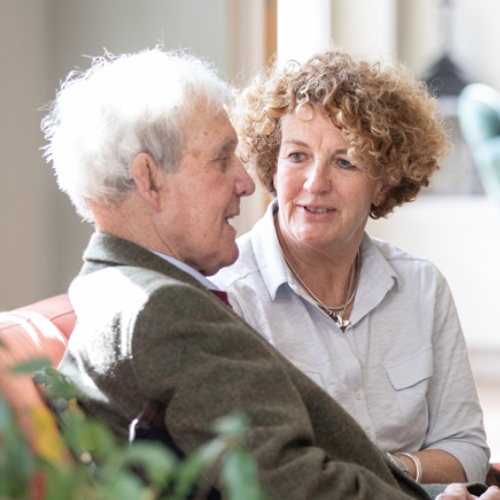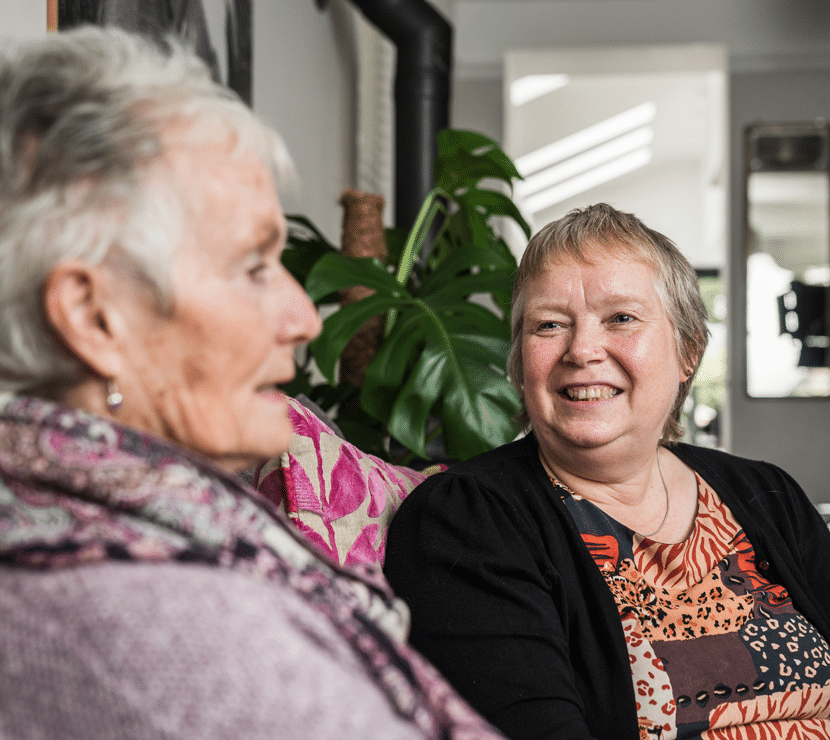As an independent regulator, the Care Quality Commission (CQC) plays a crucial role in maintaining the quality and safety of health and social care services across England. From hospitals to care homes, the CQC sets and enforces important standards. It ensures that people all across the country are receiving high-quality care, tailored to their needs.
Here we explore what the Care Quality Commission is and what it does. You will also learn why the CQC’s oversight is so important for anyone seeking care and support in England.
What does the CQC stand for?
The Care Quality Commission (CQC) was established in 2009 as part of the Health and Social Care Act in England. The name “Care Quality Commission” was chosen to reflect the organisation’s responsibility for overseeing the quality of care provided by health and care services. The name is intended to highlight its commitment to ensuring that all people in England receive safe, effective, and high-quality care.
What is the role of the CQC?
The Care Quality Commission is the independent regulator of health and social care services across England. Their role is to monitor, inspect, and regulate a wide range of healthcare providers and care services. They also ensure that these providers and services are meeting important standards of quality and safety:
- Registering and monitoring: The CQC is responsible for registering and monitoring all health and social care services, including hospitals, care homes, dental practices, and GPs. This includes inspecting services regularly to ensure that they meet the CQC’s fundamental standards.
- Promoting improvement: The CQC is also responsible for encouraging and promoting improvement in the care sector. This could involve working with care providers to identify areas for improvement and then supporting them in making the necessary changes.
- Taking action when necessary: If the CQC identifies that a health or social care service is not meeting the required standards, it can take enforcement action to ensure that the service improves. Possible enforcement actions include warning notices, restricting a service’s activities, or even closing it down if necessary.
The CQC plays a critical role in ensuring people in England receive the best possible care. Its work helps to promote improvement in the care sector and protect people from the potential harm of care mismanagement.
What are the five CQC standards?
The Care Quality Commission has set out five key standards that all health and social care providers must meet. These minimum standards are known as the “fundamental standards” and are outlined in the Health and Social Care Act 2008 (Regulated Activities).
Here are the five CQC standards in more detail:
1. Are they safe?
Health and social care services must always be provided in a safe environment, where people are protected from avoidable harm. This includes ensuring that risks to people’s safety are properly assessed and managed and that staff is trained and supported to provide care that is safe and person-centred. Providers must also have systems in place to manage incidents and safeguard people from harm.
2. Are they effective?
All health and care services must be effective in meeting people’s needs and delivering positive health outcomes. They must ensure that people receive the right care, treatment and support they need to maintain their quality of life. Care must be delivered by competent staff and tailored to their individual needs. Providers must also monitor the quality and outcomes of care and make improvements where necessary.
3. Are they caring?
Care must always be provided in a way that is compassionate, dignified and respectful. This includes treating people with kindness, empathy and understanding, and supporting them to maintain their dignity and independence. Providers must also involve people in decisions about their own care and ensure that care is delivered in a way that meets both their individual needs and preferences.
4. Are they responsive to people’s needs?
Care services should be responsive to people’s changing needs and preferences and delivered in a timely and effective manner. Providers must listen to people’s feedback, concerns and complaints, and use this information to improve the quality of care provided.
5. Are they well led?
Health and social care services should be well led, with effective leadership and management. Care providers should encourage a culture that supports openness and transparency. There should also be effective systems in place to monitor and improve the quality of care and ensure compliance with legal and regulatory requirements.
Who does the CQC regulate?
The CQC is the independent regulator of health and social care services in England. As such, it regulates a wide range of health and social care providers, including:
- Hospitals both publicly funded and private
- Residential care homes for older adults and people with disabilities or other complex needs
- General practitioners (GPs)
- Dental practices
- Community health services
- Ambulance services
- Independent healthcare providers including home care providers
Registered care providers
Registered care providers like Oxford Aunts are fully regulated by The Care Quality Commission. Both home care providers and care homes are required by law to register with the CQC.
As part of their oversight duties, the CQC regularly carries out inspections of these services to ensure the quality of care being provided. Inspections are based on the five key areas of safety, effectiveness, care, responsiveness, and being well-led. They are carried out by CQC inspectors who have relevant professional expertise and experience.
During an inspection, the CQC team will look at a range of evidence, including:
- Observations: Inspectors will observe how care is provided and how staff interact with people who use the service.
- Interviews: Inspectors will talk to staff, service users, their families and carers, to gather their views and experiences of the care provided.
- Records: Inspectors will review care plans, risk assessments, and other documentation to determine whether the care being provided is safe and of good quality.
- Data: Inspectors will use any other relevant information to assess the quality of care provided, including patient outcomes and staff training and development.
After the inspection, the CQC holds a feedback session with senior staff to discuss their findings. During this session, they may also bring up any issues that require attention and advise on how to address them.
If necessary, they will schedule follow-up visits and outline any outstanding issues that must be resolved before the next inspection.
What are CQC ratings?
Following an inspection, the CQC provides a rating for the service. This rating reflects their assessment of the service’s performance across the five key areas:
- Outstanding: Services performing exceptionally well in all areas, with high-quality care and strong leadership. “Outstanding” services are often innovative and responsive to the needs of the people they support.
- Good: Services performing well in all areas, with bespoke and person-centred care. Services that receive a “good” rating are generally safe, effective and caring.
- Requires Improvement: Services not performing as well as they should in one or more areas, but are not providing unsafe care. Services that receive a “requires improvement” rating must take action to address the areas that need improvement. The CQC follows up to ensure that these improvements are made.
- Inadequate: Services that are providing care that is unsafe or of poor quality, with significant concerns across multiple areas. These services often fail to meet the fundamental standards of quality and safety. The CQC may take enforcement action against services that receive this rating, such as suspending their registration.
A fully regulated care provider you can trust
Oxford Aunts is a fully regulated and managed provider of home care. Since 1967, we have cared for thousands of people across Oxfordshire and beyond enabling them to live with independence and dignity in their own homes.
Our live-in care service and hourly care service are both fully managed and regulated. This means that while our carers are providing care to you, they are directly employed and managed by us. Our management team of care experts provides ongoing supervision and support to ensure that our carers maintain the high standards of care that our clients expect.
Choosing a fully regulated and managed home care service provides numerous benefits. You can rest assured that the care you receive will be of the highest quality and meet the CQC’s fundamental standards. It also includes ongoing supervision and management of care, ensuring that our service remains consistent and responsive to your needs.
There truly is no comparison to the peace of mind a fully managed and regulated service provides to our clients and their families. When you choose Oxford Aunts, you can be assured that your loved ones are receiving bespoke and quality care designed to enhance health, well-being and quality of life.
Get in touch with us about your care needs
Our expert care advisors are here to help you understand your options.





